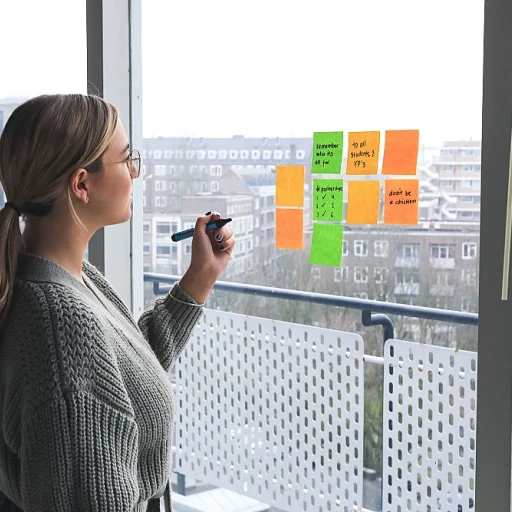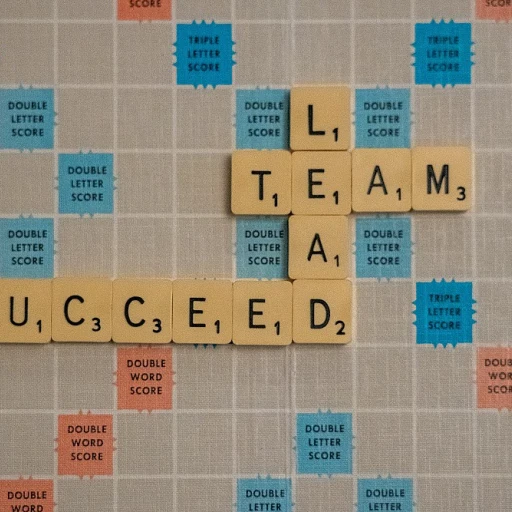
The Role of a Potential Candidate in HR Interviews
The Candidate's Role in the Interview Process
Embarking on the journey of an HR interview can be both exciting and daunting for any potential candidate. Understanding your role in this process is crucial to making a great impression. As a candidate, you are not just a passive participant; you are an active contributor to the conversation. This is your opportunity to showcase your skills, experience, and how you can be a great fit for the company.
During the interview, your main goal is to demonstrate why you are the best candidate for the position. This involves more than just answering questions; it requires you to engage with the hiring manager and the team, highlighting your unique qualities and how they align with the company's needs. Your ability to communicate effectively, showcase your problem-solving skills, and demonstrate emotional intelligence can set you apart from other candidates.
Moreover, the interview is a two-way street. While the company is assessing your potential, you should also be evaluating whether the company culture and the position align with your career goals and values. This mutual assessment ensures a good fit for both parties, leading to a more successful recruitment process.
In today's competitive job market, companies often use applicant tracking systems to identify candidates with high potential. Being aware of this technology and tailoring your application to meet the system's criteria can increase your chances of being noticed. Additionally, preparing for the interview by researching the company and understanding the screening interview process can provide you with a significant advantage.
Ultimately, your role in the HR interview is to present yourself as a well-rounded candidate who not only meets the job requirements but also brings added value to the company. By understanding your role and preparing accordingly, you can navigate the interview process with confidence and poise.
Key Skills HR Professionals Look For
Identifying the Core Competencies Desired
In any hiring process, especially for HR roles, hiring managers are focused on candidate skills that align well with the position requirements and company expectations. While technical prowess can be significant, HR roles often demand a balance between hard and soft skills. Companies are on the lookout for those possessing high emotional intelligence, which can foster effective communication and problem-solving within a team. A potential candidate must demonstrate an understanding of the hiring process, including familiarity with tools like applicant tracking systems, which help in identifying candidates in an efficient manner. Moreover, honing communication skills is crucial, as HR professionals interact with multiple teams and stakeholders. Understanding the company's needs and evaluating whether you would be a good fit is pivotal. This requires potential candidates to meticulously identify which role aspects they are a great fit for, based both on their own abilities and the particular company culture. Finally, an impactful resume reviewing process and preliminary interviews often aim to filter candidate qualities that ensure they will grow and thrive in their potential new job. Hence, it remains vital to represent your experience and skills authentically and compellingly throughout the application journey. For detailed insights into HR positions and requirements, exploring different HR roles such as payroll specialists can be beneficial. Recognizing these elements can set a high potential candidate on the path to success in HR interviews.Common Challenges Faced by Potential Candidates
Overcoming Common Obstacles in HR Interviews
Navigating an HR job interview comes with its own set of challenges, particularly for potential candidates who are eager to impress. Tackling these obstacles head-on can dramatically improve a candidate's chances of succeeding in the hiring process. One major challenge is the struggle to effectively communicate one's skills and experiences during the interview. Potential candidates often underestimate the importance of articulating their strengths and past achievements. Ensuring they are clear and concise when responding to the hiring manager's questions can set them apart from other candidates. Dealing with anxiety is another common challenge. Many candidates find themselves overwhelmed by the process, compromising their performance. To address this, candidates should focus on preparation, such as rehearsing their responses to potential interview questions. Practicing answers aloud can help build confidence and ease nerves when it’s time to face the hiring manager. Technological hurdles, such as navigating different interviewing platforms, can also pose challenges. Technical glitches or unfamiliarity with digital tools can disrupt the interview process. Candidates are advised to familiarize themselves with the chosen platform in advance and ensure their technology is working properly, minimizing such disruptions. Lastly, distinguishing oneself among numerous applicants is crucial. Challenges with applicant tracking systems arise when keywords from a candidate's resume do not match the job description. Ensuring that resumes are tailored to each position and include relevant keywords can help candidates stand out in the early stages of the recruitment process. By identifying these common challenges and preparing accordingly, potential candidates can better showcase their qualifications and soft skills, ultimately proving to be a great fit for the company culture and the position in question.Preparing for Behavioral Interview Questions
Navigating Behavioral Interview Questions
Preparing for behavioral interview questions can be a nuanced aspect of the hiring process, often underestimated by potential candidates. HR professionals frequently employ this method to delve into a candidate's experiences and assess how their skills align with the company's goals and team dynamics. When gearing up for these questions, it's essential to reflect on past job experiences where you demonstrated key skills, such as problem solving and emotional intelligence. The time invested in preparing for these questions can markedly elevate your chances of being the best fit for the position. Consider the following strategies:- Identify Core Scenarios: Revise your professional history to identify scenarios where you excelled in roles similar to the one you're applying for. These instances will serve as critical talking points.
- Structure Your Responses: A systematic approach such as the STAR method (Situation, Task, Action, Result) can aid in clearly conveying your experiences. This structured format helps in portraying a comprehensive picture to the hiring manager.
- Highlight Soft Skills: In this context, emphasize your soft skills, particularly those related to communication and emotional intelligence, as these mirror your potential to harmonize with the company's culture.
The Importance of Cultural Fit
Aligning with the Company's Core Values
In today's competitive job market, the selection process goes beyond solely evaluating a candidate's hard skills and educational background. HR professionals understand the importance of finding candidates who not only have the potential to excel in their role but also resonate with the company culture. This alignment, often referred to as cultural fit, is a critical factor that can determine a candidate's success within the organization. Organizations are beginning to place equal importance on both technical skills and soft skills, such as communication skills and emotional intelligence, when reviewing applications. While assessing a potential candidate, hiring managers are keen to identify candidates who exhibit a great fit with the team. This involves looking for signs during the interview process that the candidate shares the company's core values and long-term vision.Why Cultural Fit Matters
Cultural fit not only increases the chances of a candidate's success in their position but also contributes to higher job satisfaction and overall team synergy. When candidates are in alignment with organizational values, they are more likely to contribute positively to the workplace, bringing their full potential and emotional intelligence to problem solving and collaborative tasks. This, in turn, benefits the company by enhancing employee retention and reducing turnover – key aspects of a successful recruitment process. Moreover, a good fit with the company culture can improve the onboarding process, allowing new employees to seamlessly integrate and reduce the time required to become productive members of the team. As time goes on, these employees can help reinforce the company culture, thereby supporting the organization's long-term growth and stability.Identifying Cultural Fit During the Hiring Process
To identify candidates who align with their company culture, organizations are leveraging various tools and techniques during the hiring process. Behavioral interview questions, for instance, offer insight into how a candidate may handle real-world scenarios that reflect the company's values. It allows the interviewer to gauge the candidate's soft skills and approach to conflict resolution. Additionally, many companies utilize an applicant tracking system to streamline the screening process, enabling HR teams to focus on high potential candidates who exhibit a great fit with the organization's core values. During the running of this process, it is vital for both the interviewer and the potential candidate to engage in meaningful dialogue, addressing questions related to the company's vision and mission. Ultimately, finding a candidate who shares the company's culture and values leads to a richer and more fulfilling work environment for everyone involved. As organizations continue to recognize the importance of cultural fit in their talent acquisition strategies, candidates must be prepared to demonstrate their alignment during interviews, ensuring they stand out as the best choice for the position they seek.Post-Interview Strategies for Potential Candidates
Post-Interview Reflections and Actions
After completing the interview process, potential candidates are often left wondering, "What now?" It's crucial to have a strategy in place for these post-interview moments to maintain a strong image and keep the momentum going. A successful candidate knows that the interview doesn't end once they've left the company premises. Taking time to reflect on your performance can be a great learning opportunity. Evaluate your responses, particularly to behavioral questions, and consider how well you showcased your communication skills, problem-solving abilities, and emotional intelligence. Understanding the effectiveness of your answers can improve your future interviews. It's also important to assess how well you aligned with the company culture during the interview. Did the team's values resonate with your own? This cultural fit is an essential aspect in determining if a position is a good fit for you both as a candidate and within the company. The following post-interview strategies will help you stand out from other potential candidates:- Send a thoughtful thank-you email: Express gratitude for the opportunity and reiterate your enthusiasm for the position. This demonstrates professionalism and interest.
- Review feedback: If provided, consider feedback from the hiring manager or team on aspects of your interview. Use this feedback in your journey to becoming a high-potential candidate.
- Be proactive in follow-ups: If you haven't heard back within the stated time frame, sending a polite inquiry can show your commitment to the recruitment process without being intrusive.













